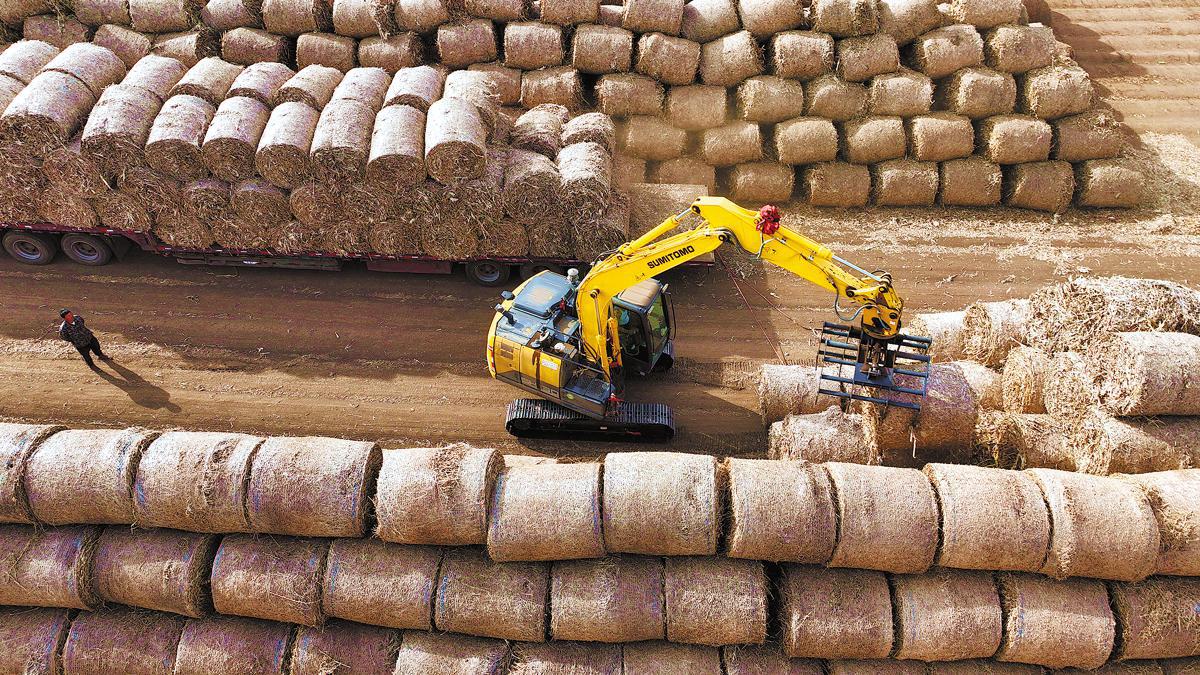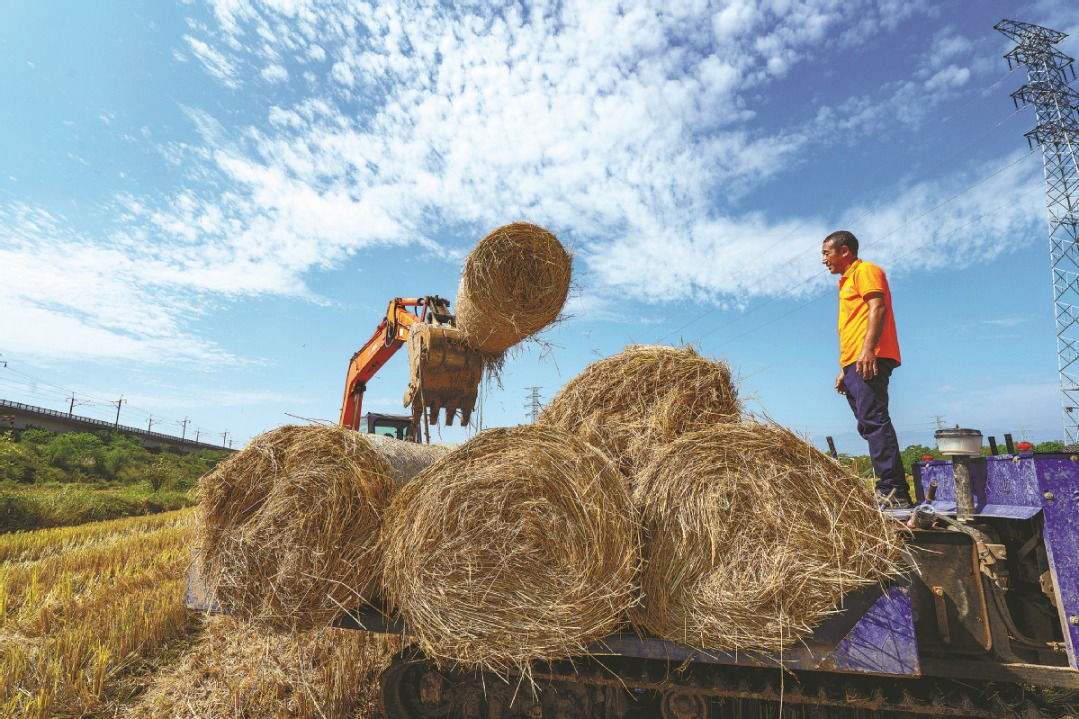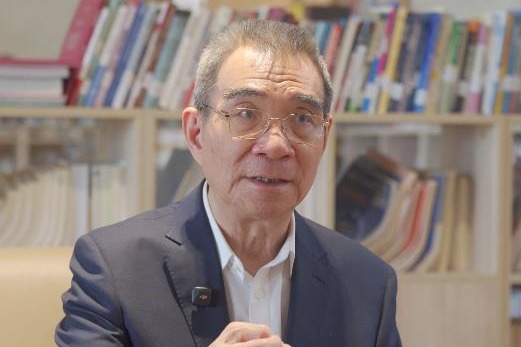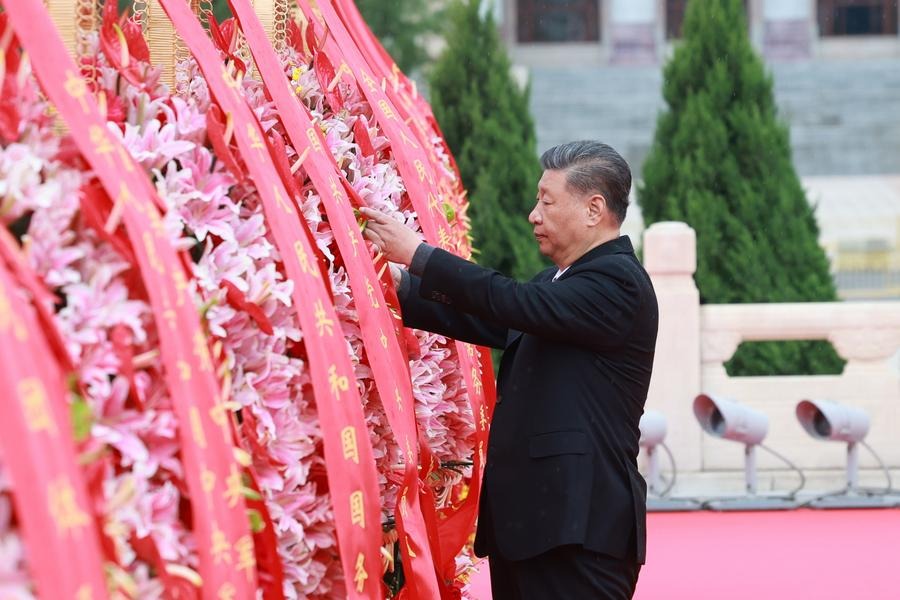Farm waste turned into biofuel produces healthy profit
Transformation of recycled straw contributes to green transition in grain-growing provinces






In a statement provided to China Daily, the office stressed the initiative as a potential solution to simultaneously address pollution from farming and promote clean energy production. Every year, roughly 38 million tons of straw is generated in Hubei's agricultural sector, and large-scale animal farming operations across the province produce over 72 million tons of manure, it said.
The initiative this year will promote an operation mode that features renewable energy generation, circular economy and industrial development, the office added.
In addition to implementing biogas facilities customized to local conditions, it said the initiative will establish supporting infrastructure to enable the use of by-products from biogas production such as organic fertilizers, promoting the cultivation of organic and pollution-free agricultural and forestry products.
The office also highlighted additional strategies that will be tapped to increase rural incomes, such as selling organic fertilizers and the trading of carbon credits.
The statement outlined plans to introduce a biogas-fueled electricity generation program in these demonstration villages to boost the consumption of renewable energy in agricultural production and rural living.
Even before the demonstration projects this year, in 2017 Hubei rolled out pilot programs in 18 counties for comprehensive utilization of agricultural waste.
That year, Hubei Green Energy Eco-Tech Co launched a demonstration industrial park for large-scale biogas development in Yicheng county's Liushui township, the largest watermelon-producing area in Hubei.
The park processes livestock and poultry manure, straw and spoiled fruits and vegetables to generate biogas and make organic fertilizers.
Shen Xueli, an executive at the company, said the initiative aims to effectively tackle agricultural pollution while promoting the development of ecological circular agriculture.
The park has the potential to dispose of some 5,000 tons of different types of waste annually, producing roughly 60,000 tons of solid and liquid organic fertilizers, most of which could be supplied to nearby orchards.
Aside from the environmental benefits, the utilization of agricultural waste comes with economic gains for local residents. Liu Chuanhua, a resident in the township whose family of six depend on farming for a living, is keenly aware of that.
Previously, a large amount of rice straw was left on the farm after the harvest season. As the straw is slow to rot, it posed challenges for the plow work, the 60-year-old said. Now, however, straw balers are used to band the straw for selling, with the prices ranging from 350 to 600 yuan per ton.
"Before, straw left in the fields was just waste. Now, it's collected and turned into money," he said.
Contact the writers at houliqiang@chinadaily.com.cn



















